Meet the SGS Community
Meet Our Students
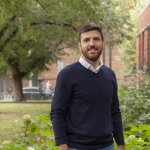
Agustin Garza
MBA, Rotman School of Management

Aida Habib
Master's, Biotechnology
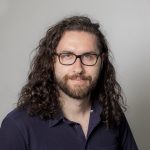
Andrew H. Proppe
Alumnus, PhD (Chemistry), 2019, GG Gold Medal Recipient

Arturo Reza Ugalde
PhD Candidate, Mechanical & Industrial Engineering
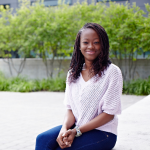
Boluwatife Awonaike
PhD Student, Environmental Science
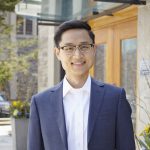
Calvin Ke
PhD Candidate, Health Policy, Management & Evaluation
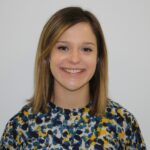
Carly MacEacheron
PhD Student, Department of Geography & Planning
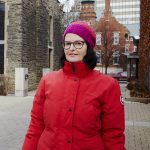
Catia Corriveau-Dignard
PhD Student, Spanish
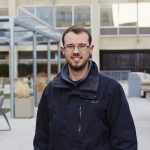
Cedric Beaulac
PhD Candidate, Statistical Sciences

Charlotte Clarke
PhD Student, Department of History
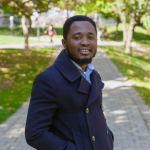
Chidozie Ojobor
PhD, Molecular Genetics
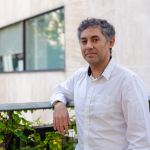
Claudio Jaramillo
PhD, Language and Literacies
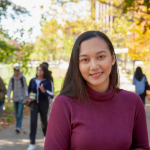
Criselda Jean Cruz
International Visiting Graduate Student, Chemical and Physical Sciences

Damilola Iduye
PhD Student, Dalla Lana School of Public Health
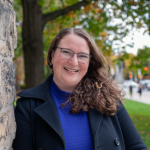
Diana Burchell
PhD, Developmental Psychology and Education
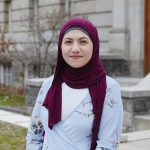
Dina Sabie
PhD Student, Computer Science
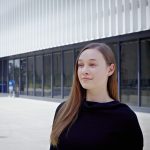
Emily Tonin
Master's Student, Management & Professional Accounting
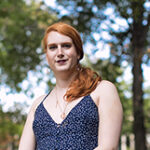
Florence Ashley
SJD student, Faculty of Law
2022-23 Adel S. Sedra Distinguished Graduate Award
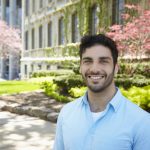
Geith Maal-Bared
PhD Candidate, Medical Science

Jad Sinno
PhD Student, Department of Public Health Sciences

Jake Dow
MA Student, Department of English

Jared Crane
MSc student, Faculty of Dentistry
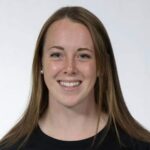
Jill Downey
MSc Student, Department of Chemistry

Joel Goodwin
PhD Student, Forestry
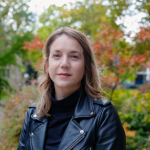
Judith Ellen Brunton
PhD Candidate, Department for the Study of Religion
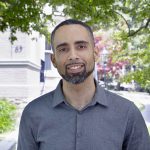
Julius Haag
PhD Candidate, Criminology & Sociolegal Studies
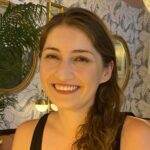
Kate Mitchell
SJD Student, Faculty of Law
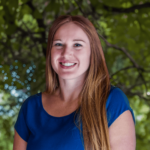
Katie O’Shea
PhD student, Dalla Lana School of Public Health
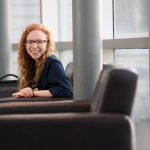
Kayla Preston
PhD Student, Department of Sociology
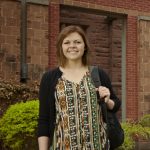
Kristen Pue
JD/PhD Candidate, Political Science

Lauren Squires
PhD Student, Department of Public Health Sciences
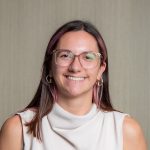
Lauren Williams
MASc student, Institute for Aerospace Studies
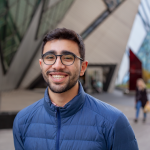
Majed Karam
Master, Concrete Materials Research Group
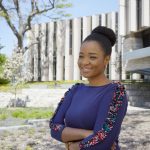
Mariam Olafuyi
PhD Candidate, Law
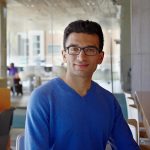
Mark Bloom
PhD (2018), Cell & Systems Biology

Matthaeus Ware
MD/PhD Student, Department of Molecular Genetics
2021-22 Adel S. Sedra Distinguished Graduate Award
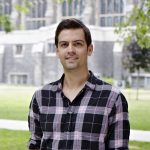
Matthew Patience
PhD Candidate, Spanish
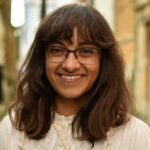
Nayani Jensen
PhD Student, Institute for the History and Philosophy of Science and Technology

Nick Fernandez
MSc Student, Department of Medical Biophysics

Niklas Schaefer
Master of Accounting and Finance Program
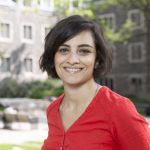
Nora Tataryan
PhD Student, Women & Gender Studies
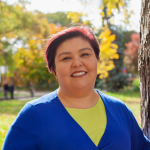
Sandi Wemigwase
PhD, Social Justice Education

Sara Ahmed
MD/PhD student, Institute of Biomedical Engineering
2023–24 Adel S. Sedra Distinguished Graduate Award
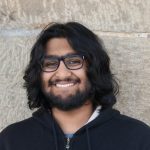
Seshu Iyengar
PhD Student, Physics
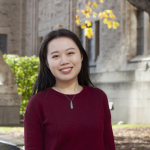
Sophia Chan
Master of Financial Insurance Program
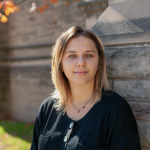
Stefania Galbiati
International Visiting Graduate Student, Cinema Studies
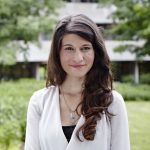
Tara Gralnick
PhD Candidate, Counselling & Clinical Psychology
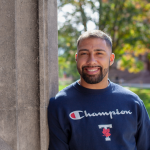
Trenton Johanis
PhD, Psychology
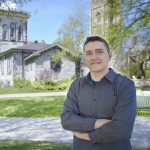
Trevor Stirling
PhD Candidate, Electrical & Computer Engineering
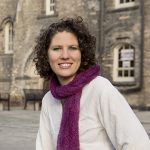
Vardit Lightstone
JEP PhD Candidate, Germanic Languages and Literatures
University of Toronto (lead) / Hebrew University of Jerusalem (collaborator)
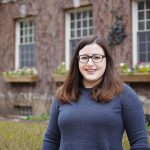
Verena Kozmann
PhD Candidate, Anthropology
International Visiting Graduate Student from Austria
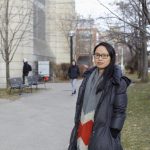
Yongshan He
PhD Candidate, East Asian Studies
Meet Our Alumni

Aastha Sahni
Alumna, MEd (2013), Developmental Psychology & Education

Adam Durbin
Alumnus, MD/PhD (2010), Medical Biophysics
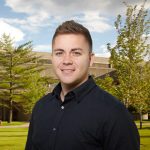
Adam Sheldon
Alumnus (2010), Master of Environmental Science
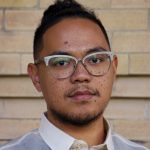
Adrian De Leon
Alumnus, PhD (History), 2019, GG Gold Medal Recipient
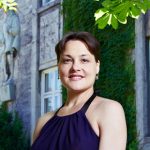
Alexandra Lysova
Alumna, PhD, Criminology

Alexandre Paquin-Pelletier
Alumnus, PhD, Political Science, GG Gold Medal Recipient
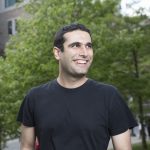
Amir Manbachi
Alumnus, PhD (2015), Biomedical Engineering

Andrew H. Proppe
Alumnus, PhD (Chemistry), 2019, GG Gold Medal Recipient

Annieza Mohamed
Alumna (2014), Master of Management of Innovation

Art Babayants
Alumnus, MA (2011), Curriculum, Teaching & Learning
Alumnus, PhD (2017), Drama, Theatre & Performance Studies
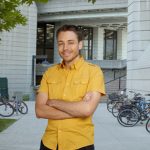
Brandon Weigel
Alumnus (2011), Master of Information

Chirag Variawa
Alumnus, PhD (2014), Mechanical & Industrial Engineering

Christine Le
Alumna, PhD (2017), Chemistry

Cindy Bongard
Alumna, PhD (2013), Environmental Science

Clyde Matava
Master's (2019), Translational Research in the Health Sciences
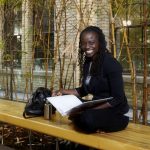
Crystal Vincent
Alumna, PhD (2014), Ecology & Evolutionary Biology
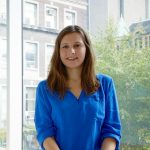
Daiva Nielsen
Alumna, PhD (2014), Nutritonal Sciences
Winner, 2014 Provincial Three Minute Thesis (3MT®)
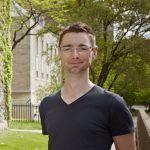
Dan Weaver
Alumnus, PhD Physics
Collaborative Specialization in Environmental Studies
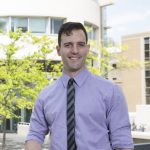
David Cesar Del Rey Fernandez
Alumnus, PhD (2015), Aerospace Science & Engineering

David Harary
Alumnus (2017), Master of Science in Sustainability Management

Dean Carcone
Alumnus, MA (2016), Counselling & Clinical Psychology
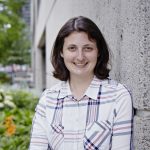
Debra Kriger
Alumna, PhD (2018), Exercise Sciences
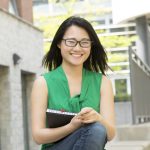
Erina He
Alumna, MScBMC (2016), Biomedical Communications
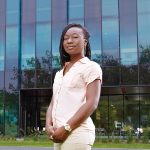
Eugenia Duodu
Alumna, PhD (2015), Chemistry
Winner of the Adel S. Sedra Distinguished Graduate Award 2013
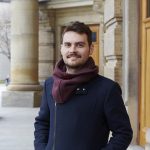
Fabio Sa Carneiro Sczepanik
Alumnus, PhD, Dentistry
Former International Visiting Graduate Student from Brazil
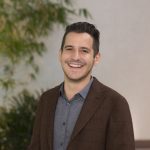
Fernando Caravaggio
Alumnus, PhD (2015), Medical Science
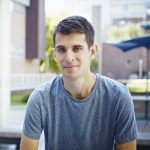
Gregory Wentworth
Alumnus, PhD (2016), Chemistry
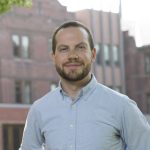
Ian Garner
PhD (2018), Slavic and East European Languages & Cultures
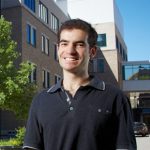
Ilya Sutskever
Alumnus, PhD (2013), Computer Science
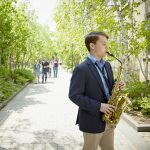
James Conquer
Master's (2019), Music Performance
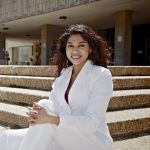
Jas Saggar
Alumna, PhD (2014), Medical Biophysics
Winner, 2013 Provincial 3MT®
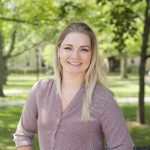
Jennie Phillips
PhD (2019), Leadership, Higher & Adult Education
Collaborative Specialization in Comparative, International & Development Education; Collaborative Specialization in Dynamics of Global Change
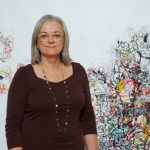
Jennifer Rudder
Alumna (2010), Master of Visual Studies
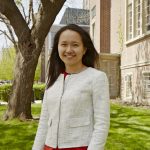
Jielai Zhang
Alumna, PhD, Astronomy & Astrophysics, GG Gold Medal Recipient

Joanne Leow
Alumna, PhD (2015), English
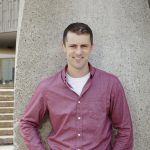
Joseph Bondy-Denomy
Alumnus, PhD (2014), Molecular Genetics
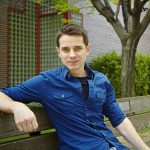
Joseph Sproule
Alumnus, PhD, History

Julie Payette
Alumna (1990), Master of Applied Science, Electrical & Computer Engineering
Governor General of Canada
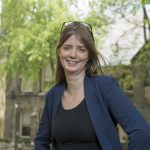
Julie St-Laurent
Alumna, PhD (2018), French Language & Literature
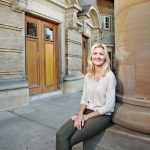
Kasia Pytlik
Alumna (2012), Master of Social Work
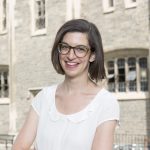
Kate Addleman-Frankel
Alumna (PhD 2019), Art History

Kieran O'Brien
Alumna, MA (2017), English
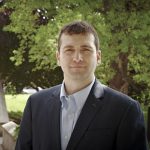
Konstantinos Papazoglou
Alumnus, PhD, Psychology
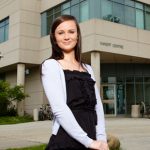
Kylyn Athey
Alumna (2013), Master of Management & Professional Accounting

Lisa Melymuk
Alumna, PhD (2012), Chemical Engineering & Applied Chemistry
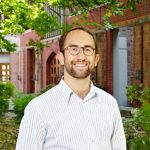
Louis Century
Alumnus (2013), Combined Juris Doctor/Master of Global Affairs

Maleeha Ahmad
Alumna (2010), Master of Biotechnology
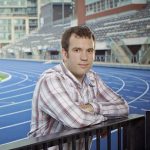
Mark Norman
Alumnus, PhD (2015), Exercise Sciences
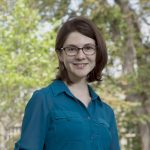
Marlo Burks
Alumna, PhD (2016), Germanic Literature, Culture and Theory

Martine August
Alumna, PhD (2014), Planning
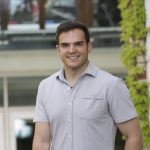
Matthew Genovese
Alumnus, PhD, Materials Science & Engineering
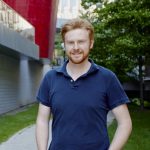
Matthew Walls
Alumnus, PhD (2014), Anthropology
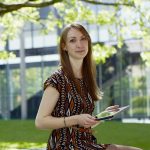
Melanie Burger
Alumna, MScBMC (2013), Biomedical Communications
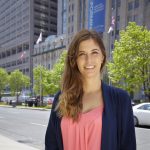
Milena Music
Master's (2019), Laboratory Medicine & Pathobiology
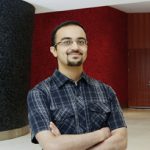
Mohamed Soliman
Alumnus, PhD (2014), Molecular Genetics
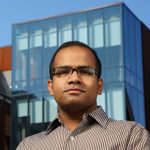
Mohammad Rahaman
Alumnus, PhD, Management and Economics

Mu-Qing Huang
Alumna (2012), Master of Science in Forestry
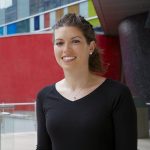
Nadine Borduas
Alumna, PhD (2015), Chemistry

Natan Adelman
Alumnus, Master of Science in Occupational Therapy

Nicole Ricker
Alumna, PhD (2016), Environmental Science

Nilesh Talele
Alumnus, PhD (2015), Dentistry
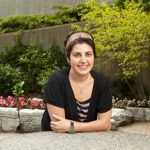
Noushin Nabavi
Alumna, PhD (2012), Cell & Systems Biology

Phil De Luna
Alumnus, PhD, Materials Science & Engineering, GG Gold Medal Recipient

Rageen Rajendram
Alumnus, MSc (2014), Medical Science
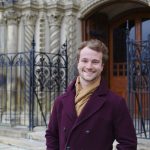
Richard Holmes
Alumnus, Master of Health Science, Speech-Language Pathology
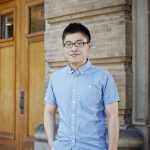
Ronnie Su
Alumnus, MEng (2013), Materials Science & Engineering
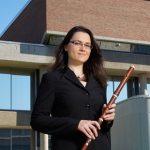
Roseen Giles
Alumna (2016), PhD, Music

Sahar Te Rezazadehtehrani
Alumna, Master of Visual Studies

Samah El-Tantawy
Alumna, PhD (2012), Civil Engineering
Former Postdoctoral Fellow

Samra Zafar
Alumna, MA (2015), Economics
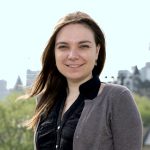
Sandra Barbosu
Alumna, PhD (2016), Management
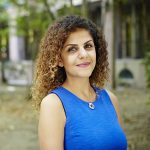
Sara Mazrouei
Alumna, PhD (2018), Earth Sciences
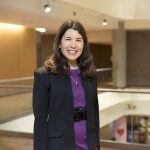
Sarah Gagliano
Alumna, PhD (2016), Medical Science
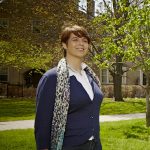
Sarah Jane Steele
Alumna, PhD (2015), Public Health Sciences
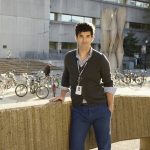
Sean McCurdy
Alumnus, PhD (2016), Laboratory Medicine & Pathobiology
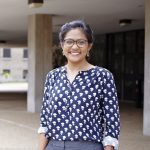
Senjuti Saha
Alumna, PhD (2016), Molecular Genetics

Stewart Lyons
Alumnus (2004), MBA, Rotman School of Management.
CEO, Bird Canada

Tammara Soma
Alumna, PhD, Planning

Tariq Harb
Alumnus, Doctor of Musical Arts (2014), Music Performance

Taylor Schmitz
Alumnus, PhD (2012), Psychology
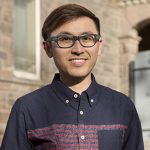
Ting-Hin Ho
Alumnus, JEP PhD Molecular Genetics
University of Hong Kong (lead) / University of Toronto (collaborator)
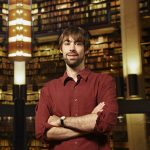
Tristan Sharp
Alumnus, PhD (2013), Medieval Studies
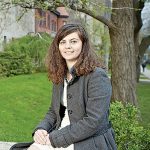
Valentina Fulginiti
Alumna, PhD (2014), Italian Studies
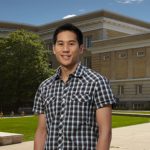
Vincent Cheung
Alumnus, PhD (2013), Electrical & Computer Engineering
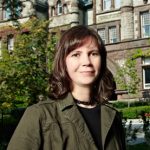
Ximena Berecochea
Alumna, PhD (2014), Spanish
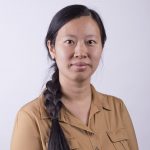
Yimu Zhao
Alumna, PhD (Biomedical/Medical Engineering), 2019, GG Gold Medal Recipient
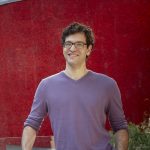
Yuriy Baglaenko
Alumnus, PhD (2017), Immunology
Meet Our Postdoctoral Fellows
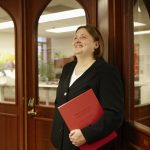
Christina Geisen
Alumna, PhD, and Former Postdoctoral Fellow, Near & Middle Eastern Civilizations

Lisa Haley
Senior Advisor & Manager, Program Completion and Postdoctoral Services, School of Graduate Studies
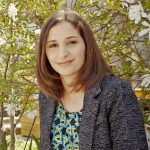
Michelle Afkhami
Former Postdoctoral Fellow, Ecology & Evolutionary Biology
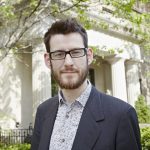
Oisin Keohane
Former Postdoctoral Fellow, Jackman Humanities Institute

Samah El-Tantawy
Alumna, PhD (2012), Civil Engineering
Former Postdoctoral Fellow
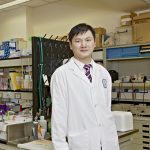
Yalun Zhang
Former Postdoctoral Fellow, Biochemistry
Meet Our Faculty & Staff
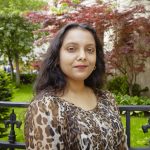
Tanuja Persaud
Graduate Administrator, English
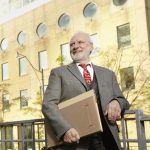
Prof. Ron Leprohon
Faculty Member, Near & Middle Eastern Civilizations

Prof. Mayo Moran
Provost, Trinity College
Former Dean, Faculty of Law
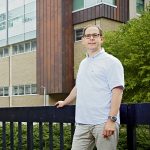
Prof. Mark Lautens
J. Bryan Jones Distinguished Professor and AstraZeneca Professor of Organic Chemistry, Department of Chemistry
NSERC/Merck-Frosst Industrial Research Chair
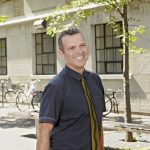
André Tremblay
Graduate Counsellor & Administrative Assistant, French Language & Literature

Diana Clark
Former Graduate Assistant, Pharmacology & Toxicology

Ian Buglass
Graduate Administrator, Cell & Systems Biology

Lisa Haley
Senior Advisor & Manager, Program Completion and Postdoctoral Services, School of Graduate Studies
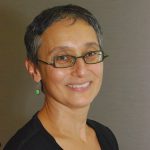
Prof. Amrita Daniere
Former Vice-Dean, Graduate, University of Toronto Mississauga (UTM)
Faculty Member, Department of Geography & Planning

Prof. Angela Hildyard
Faculty Member, Ontario Institute for Studies in Education (OISE)
Former Vice-President, Human Resources & Equity
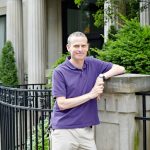
Prof. Arthur Ripstein
Former Graduate Chair, Philosophy
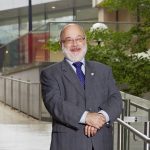
Prof. Avrum Gotlieb
Faculty Member, Laboratory Medicine & Pathobiology
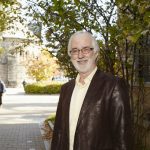
Prof. Berry Smith
Former SGS Vice-Dean, Students
Retired Faculty Member, Cell & Systems Biology

Prof. Clare Kosnik
Faculty Member, Curriculum, Teaching & Learning

Prof. Clifford Orwin
Faculty Member, Political Science
Winner, JJ Berry Smith Doctoral Supervision Award 2013

Prof. Jeanne Watson
Former Associate Dean, Programs, Ontario Institute for Studies in Education (OISE)
Faculty Member, Applied Psychology & Human Development, OISE

Prof. John Stinchcombe
Faculty Member, Ecology & Evolutionary Biology

Prof. Mark Lautens
J. Bryan Jones Distinguished Professor and AstraZeneca Professor of Organic Chemistry, Department of Chemistry
NSERC/Merck-Frosst Industrial Research Chair

Prof. Mayo Moran
Provost, Trinity College
Former Dean, Faculty of Law

Prof. Ron Leprohon
Faculty Member, Near & Middle Eastern Civilizations

Tanuja Persaud
Graduate Administrator, English
